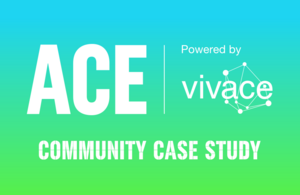Niaxo brings a wealth of experience in data platforms and analytics, with its founders having clocked up “something ridiculous” like 60 years’ worth of contracting into government as independent consultants between them.
They saw a niche, with experience of both working independently within government as well as working with government clients, to do something different and get technical projects off the ground faster – avoiding the so-called analysis paralysis which can afflict larger organisations.
And so Niaxo was born in September 2019.
The team is now significantly larger, with the initial team joined by ten staff, but retains a core focus on bring novel techniques to other people’s data problems.
An area the company is increasingly excited about, says Ed Puddicombe, Niaxo’s director of strategy and business engagement, is using artificial intelligence (AI) and synthetic data to generate simulated scenarios. These could be used for interviews, for example, or for training materials in areas such as law enforcement.
For one Accelerated Capability Environment (ACE) customer, the company used large language models to find examples of the types of text it wanted to replicate synthetically and then designed a wrapper to make an initial version of a template, which has been well received as a starting point. Technology and applications such as this could be a game-changer in terms of speeding up project timelines.
Puddicombe said: “It was a project for ACE that was the genesis of starting to do some really cool stuff with synthetic data and we enjoy being part of interesting work and working on novel challenges.”
The Niaxo team heard about ACE from contacts and, intrigued, set up a meeting to find out more. They signed up, and completed their first project in early 2020, exploring data-driven decision-making at a key point of the criminal justice system.
Puddicombe said: “We took an initial data-processing idea, and within six weeks revamped it into more of an enterprise tool.”
One of the major ACE commissions Niaxo has been part of was the covid response for the Joint Biosecurity Centre, which was set up to provide evidence-based insight to aid local and national decision-making.
The company designed and built the data science platform which calculated the ‘r’ value – the measure of how quickly infections were growing across the UK. A rough design on a piece of paper evolved into a platform where every data output could be reversed, to understand the data feeding into it.
Niaxo built a demonstrator in five days, had the first user live in five weeks, and within five months was told it was the biggest data science platform in government, with hundreds of data scientists working on it. The company also ran and continued to develop it for a number of months, before it was migrated “overnight, seamlessly” to the Department of Health and Social Care.
Another project Niaxo worked on for a law enforcement body was around understanding the mathematical principles of how online grooming in chats could be detected, and how pattern matching could help, no matter which language was being used.
Puddicombe added: “I think working with ACE illuminates problem spaces we may have overlooked, so we’ve got a skill that we didn’t know we could grow, from a seed that wouldn’t otherwise have been sown.”


